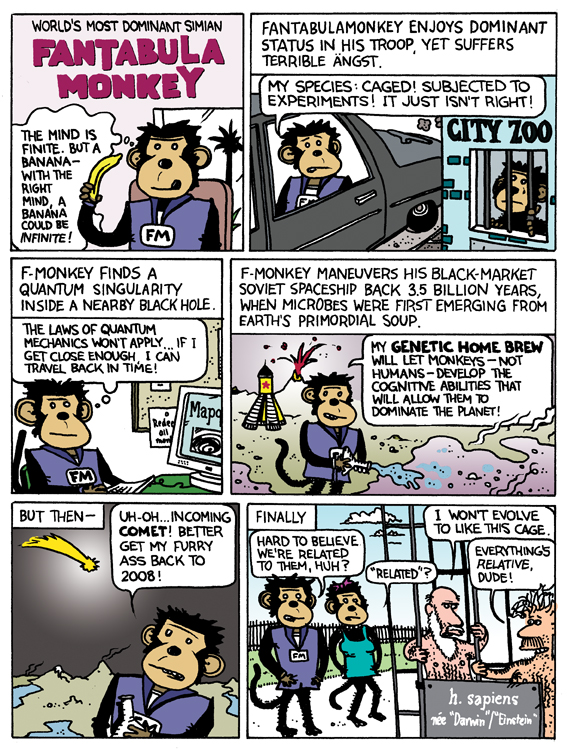
As I waited for the body of a man who jumped in front of my train to be cleared from the tracks — less than a week before another train I was riding struck a suicide victim — it occurred to me that (a) I should check whether suicide rates are increasing due to the bad economy (they are, especially among men in their 50s), and that (b) talking about suicide is long overdue.
With modernity comes depression; depression sometimes leads to suicide. And it’s a global phenomenon. “The World Health Organization reports that suicide rates have increased 60 percent over the past 50 years, most strikingly in the developing world, and that by 2020 depression will be the second most prevalent medical condition in the world,” T.M. Luhrmann wrote in The New York Times recently.
Why are so many people opting out?
Can we eliminate or reduce the number of our brothers and sisters who kill themselves?
Disclosure: my best friend committed suicide when we were 15. Bill’s death, and his inability/unwillingness to find a reason to keep living among his friends and family, left me angry and confused, unable to process an unsolvable equation. No day passes without me thinking about Bill hanging himself. His death makes me question my own daily decisions to go on living. I am not in touch with anyone else who knew him, but I imagine their trauma was not wildly dissimilar from mine.
So, yeah, it’s a personal issue for me. Given that 30,000 Americans commit suicide and 800,000 attempt it every year, it’s personal for 5,000,000 survivors of close friends and relatives too.
Nobody talks about it, but suicide is a national epidemic. Suicide by gun kills more Americans — a lot more Americans — than gun violence committed against others. (Though research shows that having a gun in your house greatly increases the chance that you’ll shoot yourself.) More American soldiers have killed themselves than have died in the war against Afghanistan.
Perhaps public discussion is inhibited by the cultural myth of the rugged individual, personal responsibility, etc. — hey, it’s your choice to live or die — but we’re all in this together. We need to save as many people as we can.
One way to reduce the suicide rate would be to get rid of capitalism. Though not a truly communist state, citizens of the Soviet Union were far less likely to kill themselves before the collapse of socialism in 1991.
There is a relentless tendency toward monopoly, consolidation of wealth and rising inequality under capitalism. Inequality — specifically, awareness of inequality — kills.
Studies show that relative poverty — how much poorer you are than your societal peers — is strongly correlated to mental illness, including depression. Of course, you can find a study to support just about anything; there’s even a theory that country music prompts people to kill themselves. Still, as Lurhmann says: “We know that social position affects both when you die and how sick you get: The higher your social position, the healthier you are. It turns out that your sense of relative social rank — literally, where you draw a line on an abstract ladder to show where you are with respect to others — predicts many health outcomes, including depression, sometimes even more powerfully than your objective socioeconomic status alone.”
Being poor doesn’t bum people out. Being poorer than other people — people whose relative wealth you personally witness — does. Mali, Bangladesh and Afghanistan are poor countries. Yet their rates of inequality are low, similar to those of Germany and the Scandinavian countries. And so are their suicide rates.
“Overall life expectancy also tracks with inequality, with a bigger wage gap meaning shorter lives and worse health — for both rich and poor, though the poor are hit much harder,” Maia Szalavitz wrote in a much-cited 2011 Time magazine article. “Researchers suspect that this gradient is linked to stress caused by our place in the social hierarchy: Stanford’s Robert Sapolsky, for example, has found that even in baboons, lower ranked animals have higher levels of stress hormones and worse health. But when status conflicts are reduced, producing a more egalitarian situation, these differences are also reduced.”
In a famous 2003 experiment with monkeys, the animals refused to accept small food allotments than those offered to neighboring monkeys. They became angry at the researchers, throwing objects at them — apparently because they blamed them for unequal distribution of the treats.
Those monkeys were on to something. Better to turn our rage against those responsible for inequality than against ourselves.
(Support independent journalism and political commentary. Subscribe to Ted Rall at Beacon.)
COPYRIGHT 2014 TED RALL, DISTRIBUTED BY CREATORS.COM

